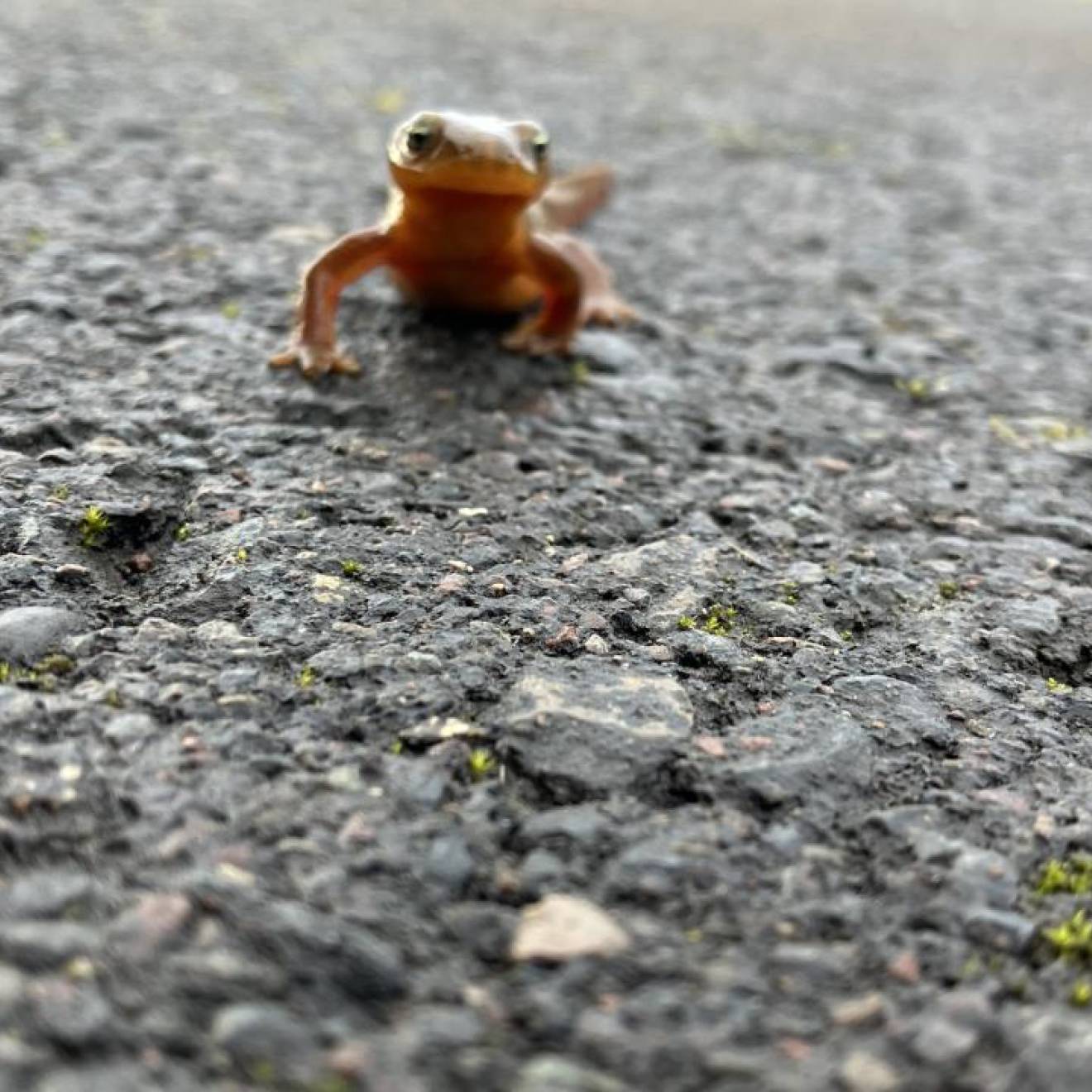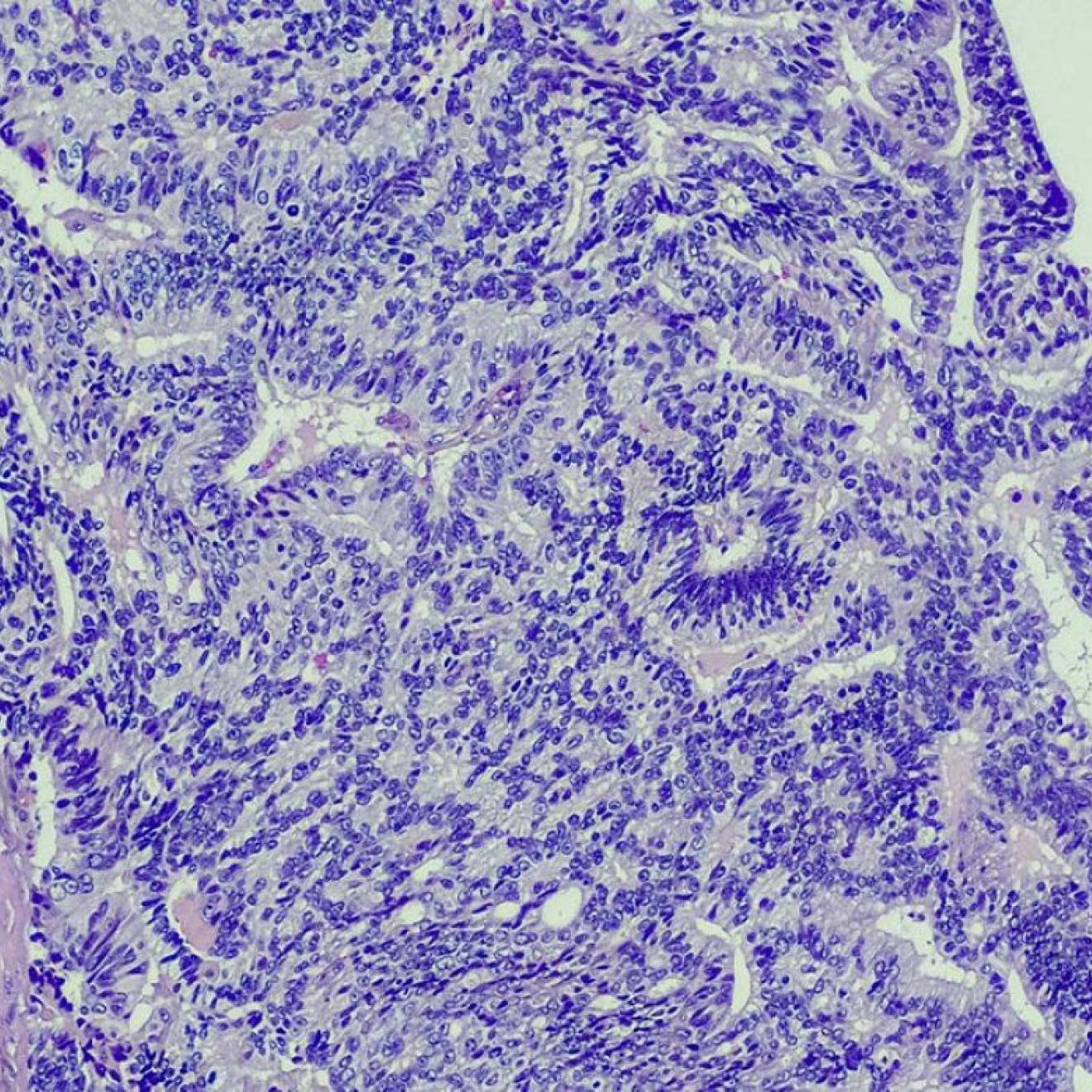Susan Suleiman, UC Newsroom
The University of California is renowned for conducting world-changing research across the globe.
Yet few people realize that this important work isn't just the province of faculty and graduate students: Undergraduates at every UC campus have opportunities to participate in these transformative experiences.
In fact, more than half of all UC undergrads gain research experience while at UC. One source of support for undergraduate research opportunities comes from Multicampus Research Programs and Initiatives (MRPI) awards — competitive grants that fund work in a wide range of fields including international and area studies, social and behavioral sciences, and critical California issues.
UC Berkeley undergrad Arienne Malekmadani, for example, traveled to Ghana and spent six weeks as a volunteer at Ho Municipal Hospital as part of her studies with the Blum Center for Developing Economies.
It proved a life-altering experience, one that set her on a new professional course: She sobbed with frustration the first time she tried to enroll children in Ghana's health insurance program, yet by the end of her volunteer stint, she had secured insurance for nearly 500 children and had decided to go to medical school.

Courtesy of Arienne Malekmadani
"Field work is a transformative experience for students," said Chetan Chowdry, coordinator for the Global Poverty and Practice Minor at the Blum Center. "Abstract issues become very real."
Transformative is a word that comes up frequently in conversations about the multicampus research programs that provide international research opportunities to undergraduates. These aren't junior years abroad: Undergraduates don't merely see the world, they engage with it.
Malekmadani's experience required that she find an organization in Ghana willing to host her as a volunteer. Other UC students with MRPI support often participate in established research projects, an avenue the gives them another opportunity usually confined to graduate students: publishing their work in scholarly books and journals.
No matter which route a student takes, the experience is the kickoff of to a virtuous circle. UC faculty and researchers offer state-of-the-art training to the next generation of policy makers, aid workers and world citizens, and students foster innovation by bringing fresh perspectives to pressing global issues.
The complexities of aid
At the Blum Center — which with MRPI support has expanded to seven UC locations, offering undergraduate research opportunities at UC Davis, UC Merced, UC San Diego, UCLA and Berkeley — students learn about the theoretical underpinnings of aid work before stepping on a plane.
Malekmadani prepared for her six-week stint as a volunteer with the Ghanian health organization Blue Med by taking courses on the theory, practice and ethics of fighting poverty.
International aid has been the subject of fierce debate in recent years, with critics charging that, in some cases, aid hurts as much as it helps.
With her coursework in hand, Malekmadani started her trip aware of the pitfalls. But nothing she learned in a classroom could prepare her for what she experienced in Ghana.
She held the hand of a woman in labor as nurses fumbled for 15 minutes while attempting to give her an epidural. She learned that a patient had died from preventable kidney failure because dialysis was unavailable at Ho Municipal Hospital and he couldn't afford to go elsewhere.
Malekmadani told these stories on her blog, along with one more: the tale of baby Erica, who landed in the hospital with seizures from cerebral malaria. Erica's parents, fearful of the cost of treatment, had delayed coming to the hospital until the malaria had become life-threatening. When they couldn't pay the bill, the hospital refused to release the baby. Eight-month-old Erica contracted malaria a second time in the hospital.
This time, Malekmadani thought she saw a way to help. She knew that the government of Ghana offered health insurance to children for only $2 a year. Malekmadani set up a fundraising campaign on Indiegogo, an online donation website, and quickly exceeded her initial goal of raising $600.
"I was amazed by people's generosity," she said. "But honestly, that turned out to be the easiest part of the experience."
In a meeting with local parents, Malekmadani cringed as she listened to a health service official's patronizing tone. Only 157 people registered their children, even though there was enough funding for 300. Malekmadani picked up on something else that troubled her:
"Because I was American, people saw a dollar sign on my forehead," she said.
Finding solutions
Malekmadani had felt helpless when confronted with the suffering of patients; now, she felt doubly so. The reluctance of parents to take advantage of the health insurance wasn't the only problem. What would happen after the funding ran out? Malekmadani could raise more, but she knew the pitfalls: long-term dependence on aid, and the power imbalance between those who give and those who receive.
"Those were the big ethical dilemmas," Malekmadani said. "We would provide health insurance for a year and after that, it was kind of like: ‘You're on your own.' Or I could keep raising money.
"But knowing that you're receiving money from someone creates a power inequity that's damaging. It perpetuates the disparity that exists, even though the aid is aimed at alleviating problems."
Malekmadani discussed her worries with the director of Blue Med. Together, they came up with a solution.
"Every week the community will put the equivalent of a penny into a community pool to fund the health insurance," Malekmadani said. "That way, people have their own personal stake in their health care, and it's more of a community initiative than a donor-based initiative."
The Global Poverty and Practice program was set up to inspire exactly this kind of problem-solving, Chowdry said.
"That's the real value of this being an academic program," he said. "Students are familiar with the debates about poverty and inequality. We encourage them not to stop with the critique, but to figure out how to act in a meaningful way."

